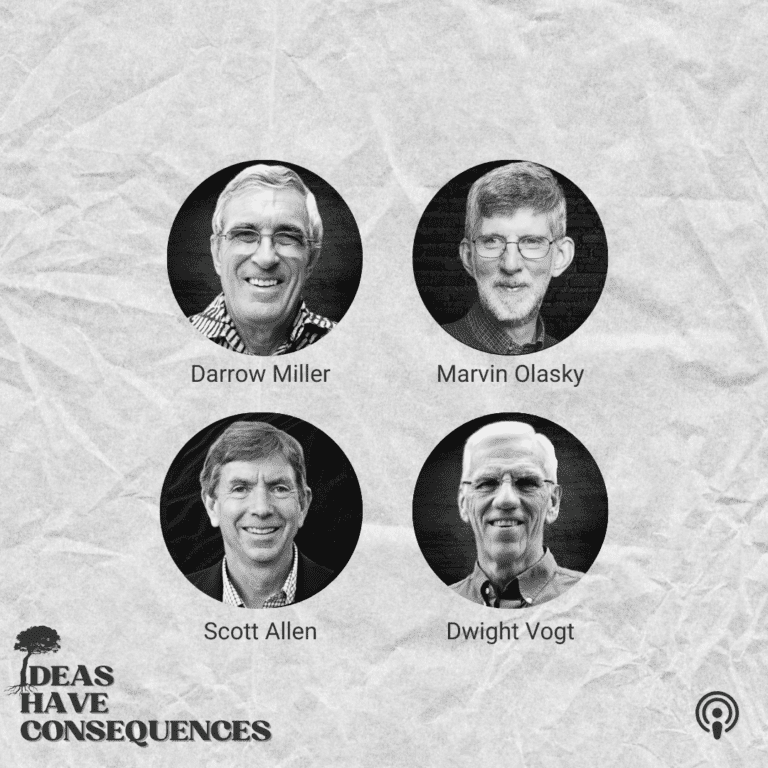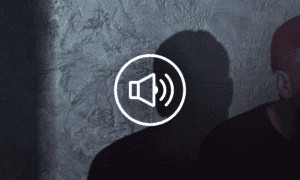At a Glance
America’s secular approach to fighting poverty has been a disaster, yet we can learn a lot from how Christians helped the poor successfully 200 years ago. If you want to make a difference on the poverty in your community, you need to join us as we feature Dr. Marvin Olasky, a senior fellow at the Discovery Institute, the former editor of World Magazine, and the author of The Tragedy of American Compassion. Olasky’s passion for this topic led him to live in a homeless community in Missouri recently. Our conversation underscores the significance of personal involvement, community, and family in combating poverty, as opposed to bureaucratic solutions and handouts alone. Further, we discuss the dignity of work and the need for employment to uplift those in poverty. Join us and discover what it truly means to live out our faith by loving our neighbors on the streets of our towns.
What You'll Hear
- Worldview of poverty [15:35]
- Principles to break poverty (and the loneliness epidemic) [24:40]
- Living on the streets [35:10]
- Dignity of work and helping others [47:50]
- Starting organizations to serve the homeless [57:23]
- Homelessness in our cities [1:04:00]
Marvin Olasky is a Senior Fellow of Discovery Institute and its Center for Science and Culture. He edited WORLD magazine from 1992 to 2021 and was a professor, provost, chairholder, and dean at The University of Texas at Austin, The King’s College, Patrick Henry College, and the World Journalism Institute from 1983 to 2021. He is the author of 28 books including The Tragedy of American Compassion, Fighting for Liberty and Virtue, Abortion Rites, Reforming Journalism, and Lament for a Father.
Dr. Olasky earned an A.B. from Yale University in 1971 and a Ph.D. in American Culture from the University of Michigan in 1976. He was a Boston Globe correspondent and a Du Pont Company coordinator, and has written 5,000 articles for publications including World, The New York Times, The Wall Street Journal, The Washington Post, The Los Angeles Times, and Fortune.
Dr. Olasky is a Presbyterian Church in America elder and has chaired the boards of City School of Austin and the Austin Crisis Pregnancy Center. He has spoken on six continents and his writings have been translated into Chinese, Spanish, Italian, French, Portuguese, and Russian. He has been to 79 major league and spring training ballparks, all 254 Texas counties, and all three Delaware counties.
Marvin has been married for 45 years and has four sons, four daughters-in-law, and five grandchildren. He has been a foster parent, a PTA president, a cross-country bicycle rider, an informal advisor to George W. Bush, and a Little League assistant coach.
Using the link above, you can read the transcript or listen along while highlighted text follows the podcast audio.
"What a lot of homeless people need is… some recognition that they're actually human beings."
Dr. Marvin Olasky (53:48)

Quotes
- 23:14 “As America became secular, its whole approach to poverty fighting became secular and rooted in that narrative of the great society and FDR and all of that leading up to the kind of modern welfare state–which has been a disaster if you really want to see people rise out of poverty. It’s just been such a disaster.” Scott
- 27:11 “Charles Dickens used to make fun–I think his term was ‘telescopic philanthropy.’ That is, someone in England in his era, was intent on helping a project in Africa that may or may not be a good project, but nevertheless the telescope pointed at Africa rather than something right next door… The biblical idea is, Jesus has asked who’s my neighbor? … So that’s the biblical emphasis on doing things–family, community–doing things locally.” Marvin
- 28:34 “The tragedy in America is that we actually knew how to fight poverty and we’ve forgotten it or ignored it or had other priorities take over.” Marvin
- 30:39 “The whole idea of a homeless community of happy people, in tents or sleeping bags is pretty rare. So bonding is what’s really essential there. It’s nice if people already have bonds, but if they don’t, it’s important to re-bond people in some way so it’s not just a bureaucracy, and not just being treated as one of ‘the homeless,’ but actually as a human being made in God’s image.” Marvin
- 45:19 “Back in the 19th century they had some nomenclature that’s very troubling for people today, but it’s important to explain. They talked about the worthy and the unworthy poor in England… When they talked about worthy, they didn’t mean whether people are made in God’s image… worthy was worthy of attention and immediate physical and material help because they will benefit from it, as opposed to just passing out money at a stoplight or a street corner to a person who very likely is going to use that money for drugs.” Marvin
- 53:48 “What a lot of homeless people need is… some recognition that they’re actually human beings.” Marvin
Go Deeper
The Tragedy of American Compassion
By Marvin Olasky
Can a man be content with a piece of bread and some change tossed his way from a passerby? Today’s modern welfare state expects he can. Those who control the money in our society think that giving a dollar at the train station and then appropriating a billion dollars for federal housing can cure the ails of the homeless and the poor. But the crisis of the modern welfare state is more than a crisis of government. Private charities that dispense aid indiscriminately while ignoring the moral and spiritual needs of the poor are also to blame. Like animals in the zoo at feeding time, the needy are given a plate of food but rarely receive the love and time that only a person can give.Poverty fighters 100 years ago were more compassionate–in the literal meaning of “suffering with”–than many of us are now. They opened their own homes to deserted women and children. They offered employment to nomadic men who had abandoned hope and human contact. Most significantly, they made moral demands on recipients of aid. They saw family, work, freedom, and faith as central to our being, not as life-style options. No one was allowed to eat and run.
Some kind of honest labor was required of those who needed food or a place to sleep in return. Woodyards next to homeless shelters were as common in the 1890s as liquor stores are in the 1990s. When an able bodied woman sought relief, she was given a seat in the “sewing room” and asked to work on garments given to the helpless poor.
To begin where poverty fighters a century ago began, Marvin Olasky emphasizes seven ideas that recent welfare practice has put aside: affiliation, bonding, categorization, discernment, employment, freedom, and most importantly, belief in God. In the end, not much will be accomplished without a spiritual revival that transforms the everyday advice we give and receive, and the way we lead our lives.
It’s time we realized that there is only so much that public policy can do. That only a richness of spirit can battle a poverty of soul. The century-old question–does any given scheme of help… make great demands on men to give themselves to their brethren?–is still the right one to ask. Most of our 20th-century schemes have failed. It’s time to learn from the warm hearts and hard heads of the 19th-century.
The Kingdomizer Training Program
More than a million people have now been trained in 115 countries.
When the principles of the Bible are understood as a comprehensive worldview, it has tremendous power to work transformation in individuals, families, communities, and even nations. Too often, Christians are ineffective because they have absorbed cultural thinking that is not in alignment with truth.
Not all worldviews are equal. Some lead to brokenness and poverty, while the biblical worldview leads to God’s intended flourishing and the blessing of the nations. Our Kingdomizer Training Program can help you understand the biblical worldview and discover areas in your own thinking that need to be transformed by God’s Word.
Get started with our completely free Kingdomizer Training Program today!
Explore More
- Discovery Institute: Center on Wealth and Poverty
- Rebuilding the foundation of America’s first principles: freedom, equality, charity, and the pursuit of happiness for all.
- True Charity’s Model Action Plans
- Childcare Solutions, Mentoring Program, Food Co-op, Christmas Market, Earn-It Project, Residential Life Transformation, Transitional Housing, Benevolence & Financial Assistance
- Documentary: Seattle is Dying (available through YouTube)






